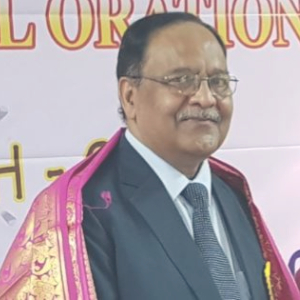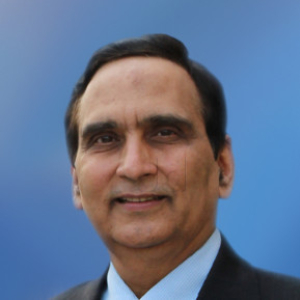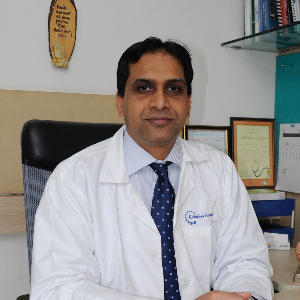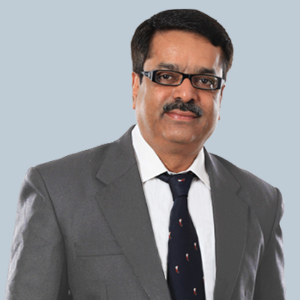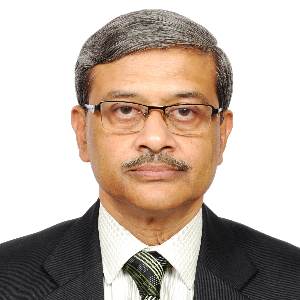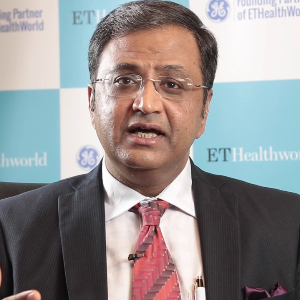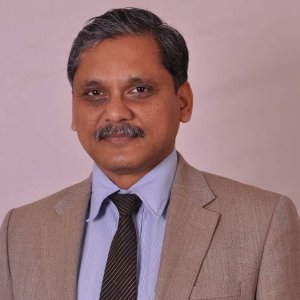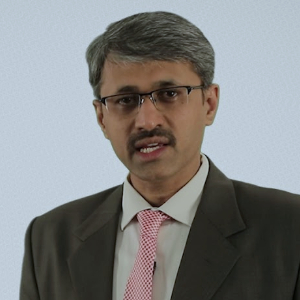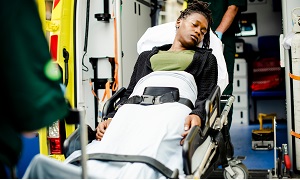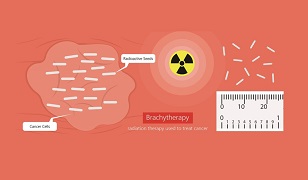Best Neurosurgeons in India for Brain Tumor Surgeries
Here are the most reputed Neurosurgeons in India for the surgical excision of all types of brain tumors.
- Neurosurgeon, New Delhi, India
- Over 45 years’ experience
Profile Highlights:
- Dr. V K Jain is a leading neurosurgeon in India with refined medical surgical precision.
- Dr. Jain has worked in a variety of significant positions in hospitals all across the world over the course of his career.
- Dr. Jain has also served as a visiting professor at a number of prestigious hospitals throughout the world.
- He has also attended many conferences, workshops, and seminars and has also been invited as faculty to many conventions both in India and abroad.
- Neurosurgeon, New Delhi, India
- Over 60 years’ experience
Profile Highlights:
- Dr. Ravi Bhatia is a veteran neurosurgeon and spine surgeon at Indraprastha Apollo Hospital New Delhi.
- He has about six decades of experience in the management and surgeries of neurological disorders. Before retiring, Dr. Bhatia worked at another prestigious Indian hospital, AIIMS, New Delhi.
- He is particularly interested in Neuro-Oncology, Brain and Spine Tumors, Cerebrovascular Surgery, and Craino vertebral abnormalities.
- To date, Dr. Bhatia has treated neuro patients with a great success rate.
- He authored chapters in many textbooks and has around 95 papers for medical journals to his credit.
- Neurosurgeon, New Delhi, India
- Over 30 years’ experience
Profile Highlights:
- With a super-specialization in Neurosurgery, Dr. S K Sogani is one of the most accomplished neurosurgeons in Delhi and NCR.
- His interest lies in tumor removal surgery, skull base surgery, brain stroke surgery, head injury, micro neurosurgery, different types of spine surgery, and emergency trauma surgery.
- Neuro Surgeon & Spine Surgeon, Mumbai, India
- Over 26 years’ experience
Profile Highlights:
- Dr. Abhaya Kumar is a leading name in the field of Neurosurgery who is an expert in Minimally Invasive Spine Surgery, Brain surgery, and Stereotactic Radiosurgery and has performed more than 1400 spine surgeries and 1100 brain surgeries in KDAH alone.
- Dr. Abhaya Kumar’s primary focus includes Minimally Invasive Spine Surgery (MISS) and has handled over 800 MISS cases till date in the hospital with 96% successful results.
- Neurosurgeon, Mumbai, India
- Over 25 years’ experience
Profile Highlights:
- Dr. Ashok Hande is a renowned neurosurgeon in Mumbai who holds the credit for 300 AVMs, 1400 skull base tumor surgeries, 3600 surgeries for cranial and spinal trauma, 1200 lumbar prolapsed intervertebral disc surgeries, 800 cerebral aneurysms, and more than 100 microvascular decompressions.
- He holds an experience encompassing 25+ years and holds the credit for pioneering neurosurgery in Mumbai by bringing in new and advanced neurosurgical procedures for brain and spine surgery.
- Neurosurgeon, Mumbai, India
- Over 28 years’ experience
Profile Highlights:
- Dr. Deepu Banerji is a leading name in the field of Neurosurgery in India and possesses extensive skills in minimally invasive and micro neurosurgery.
- He has been practicing neurosurgery for over 28 years and is counted among the best microscopic neurosurgeons in the country.
- Apart from minimally invasive surgeries, his expertise lies in skull base surgery, brain tumors surgery, vascular surgery, and spine surgeries, and has handled numerous cases of brain and spine diseases and disorders.
- Neurosurgeon, Chennai, India
- Over 35 years’ experience
Profile Highlights:
- Dr. K Sridhar is a renowned Neurosurgeon who has an experience of 35+ years in brain and spine surgery and has performed over 1000 complex brain tumor surgeries.
- His primary area of interest is skull base surgery, micro neurosurgery, and spine surgery, and is currently working on lesions of the brain stem.
- Neurosurgeon, Bengaluru, India
- Over 22 years’ experience
Profile Highlights:
- Dr. Madhusudan H V is an expert Neurosurgeon in South India with 22+ years of experience in neuro and spine surgery.
- With a specialization in minimally invasive neurosurgeries, Dr. Madhusudan holds the credit for more than 7000 neurosurgeries. He also finds interest in endoscopic interventions and frameless navigations.
- Neurosurgeon & Spine Surgeon, Bengaluru, India
- Over 20 years’ experience
Profile Highlights:
- Dr. Prahraj S S is a leading Neurosurgeon who specializes in all types of neurological surgeries and has performed over 6000 neurosurgeries till date along with complex cranial and spine surgeries.
- He is one of the most renowned neurosurgeons in the country and has provided his services to some of the premier medical institutes in India such as NIMHANS where he performed a large number of spinal surgeries.
- Neurosurgeon & Spine Surgeon, Bengaluru, India
- Over 15 years’ experience
Profile Highlights:
- Dr. Praveen K S is a highly qualified neurosurgeon with over a decade of experience in handling all kinds of neurological diseases and disorders.
- He specializes in Pediatric Neurosurgery, Neuro-Oncology, Endoscopic neurosurgery, Aneurysms, and Neuro- Trauma and has performed over 4000 neurosurgeries in his career.
Best Hospitals in India for Brain Tumor Surgeries
Fortis Escorts Hospital, New Delhi
- City: New Delhi, India
Hospital Highlights:
- Over the last 33 years, the Fortis Escorts Heart Institute has set new standards in cardiac treatment with groundbreaking research. It is now known around the world as a centre of expertise for Cardiac Bypass Surgery, Interventional Cardiology, Non-invasive Cardiology, Paediatric Cardiology, and Paediatric Cardiac Surgery.
- The hospital has cutting-edge laboratories that perform a wide range of diagnostic tests in Nuclear Medicine, Radiology, Biochemistry, Haematology, Transfusion Medicine, and Microbiology.
- Fortis Escorts Heart Institute boasts a diverse group of bright and experienced doctors who are backed up by a team of highly qualified, experienced, and devoted support professionals as well as cutting-edge equipment such as the recently installed Dual CT Scan.
- Approximately 200 cardiac doctors and 1600 personnel currently collaborate to manage over 14,500 admissions and 7,200 emergency situations each year. The hospital now has a 310-bed infrastructure, as well as five cath labs and a slew of other world-class amenities.
Rela Hospital, Chennai
- City: Chennai, India
Hospital Highlights:
- RIMC is a multi-specialty hospital in a sprawling area of 36 acres located in Chromepet, Chennai, Tamil Nadu, India.
- The facility has 450 beds including 130 critical care beds, 9 operating rooms, modern reference laboratories and radiology services, and is conveniently located near road, rail and air transportation.
- RIMC is led and managed by world-renowned physicians committed to healthcare.
- RIMC offers the broadest range of clinical care, education, and research. The hospital offers state-of-the-art technology and modern treatment facilities designed to provide health care at an affordable cost.
- Rela Institute is driven by patient needs, comfort and confidence.
CARE Hospitals, Hyderabad
- City: Hyderabad, India
Hospital Highlights:
- CARE Hospitals were established in the year 2000, by CARE Group.
- The multispecialty hospital has 435 beds, including 120 critical care beds, with an annual inflow of 180000 outpatients and 16,000 in-patients.
- The hospital provides specialty medical services in Cardiology, Cardiothoracic Surgery, Pediatric Cardiology, Pediatric Cardiothoracic Surgery, Neurology, Neurosurgery, Nephrology, and Urology.
- The hospital has the first dual source, 128 slice CT scanner (for high precision cardiac imaging) – the first of its kind in south India.
- The hospital offers a wide range of accommodation facilities for the convenience of its varied patient base, ranging from general wards to super deluxe rooms.
Fortis Hiranandani Hospital, Mumbai
- City: Mumbai, India
Hospital Highlights:
- Fortis Hiranandani hospital was established in 2007.
- The hospital is an advanced tertiary care, multi-specialty hospital equipped with 149 beds.
- The hospital is equipped with a super ICU to provide emergency medical care to critically ill patients.
- The hospital is NABH accredited.
- The critical care facility in the hospital is augmented with the state-of-the-art facilities that facilitate speedier diagnosis and efficient monitoring.
- The hospital provides specialty medical services in cardiology, orthopedic science, pediatric science, neurology, diabetic care, urology, nephrology, ENT, obstetrics, gynecology, cosmetic surgery, bariatric surgery, neuro and spine care.
Fortis Hospital, Anandpur, Kolkata
- City: Kolkata, India
Hospital Highlights:
- Fortis Hospital, Anandapur, Kolkata is a world-class super-speciality equipped with the latest technologies in the medical world.
- The hospital is NABH accredited.
- This state-of-the-art facility specializes in cardiology and cardiac surgery, urology, nephrology, neurosciences, orthopaedics, digestive care, emergency care and critical care.
- The hospital, governed by integrated Building Management System (IBMS), has a pneumatic chute system, for quick vertical and horizontal transportation between floors, facilitating speedy transfer of patient specimens, documents, reports, and medicines to the concerned departments.
- The hospital also has a nephrology department with over 28 advanced dialysis units.
Fortis Hospital Banerghatta, Bengaluru
- City: Bengaluru, India
Hospital Highlights:
- Fortis Hospital Bannerghatta, Bengaluru was established in 2006.
- The hospital is a 276 bedded multi-specialty tertiary care facility.
- The hospital specializes in cutting-edge medical technology and dedicated patient care services.
- The hospital is equipped with state-of-the-art technologies like trans-radial angioplasty, trans-abdominal cardiac surgery, and computerized TKR navigation surgery.
- The hospital provides specialty medical services in cardiology, cardiac surgery, orthopedics, neurology, neuro-surgery, GI, and Minimal Access Surgery (MAS).
Fortis Hospital, Malar, Chennai
- City: Chennai, India
Hospital Highlights:
- Fortis Malar was established in 1992 and was formerly known as Malar Hospital.
- The hospital specializes in cutting-edge medical technology and dedicated patient care services.
- The hospital is multi-specialty, tertiary care facility with 180 beds.
- The hospital offers comprehensive medical care in specialties such as cardiology, cardio-thoracic surgery, neurology, neurosurgery, orthopedics, nephrology, gynecology, gastroenterology, urology, pediatrics, and diabetes.
Gleneagles Global Hospital, Parel, Mumbai
- City: Mumbai, India
Hospital Highlights:
- Gleneagles Global Hospital The 450-bed facility comprises of 17-stories, housing state-of-the-art infrastructure, and advanced medical care facilities.
- The hospital offers end-to-end clinical, surgical, and diagnostic services. It is equipped with a team of eminent medical professionals aided by qualified nurses and medical staff
- The Hospital offers advanced Endoscopic procedures, Hepatobiliary and Liver Surgeries, Surgical and Medical Gastroenterology, Bariatric Surgery, and Robotic surgery.
- The hospital is a center of excellence for Orthopedics, Joint Replacement, Knee Replacement, and Hip Replacement surgery.
Jaypee Hospital, Noida
- City: Noida, India
Hospital Highlights:
- Jaypee Hospital is the flagship hospital of the Jaypee Group.
- This hospital has commissioned 525 beds in the first phase and has been planned and designed as a 1200 bedded multi-specialty facility.
- It holds the accreditation of the NABH and NABL.
- The hospital has state-of-the-art infrastructure equipped with the latest technologies and modern equipment like 64 Slice PET CT, Dual Head 6 Slice SPECT CT, Gamma Camera, and Da Vinci Robotic Surgery for comprehensive robotic surgical solutions.
- It has special Centers dedicated to the major specialties to provide hassle-free and high-quality clinical care.
Manipal Hospital, Dwarka, Delhi
- City: New Delhi, India
Hospital Highlights:
- Manipal Hospitals, Dwarka, is a super-specialty hospital in Dwarka, New Delhi, which is a part of Manipal Hospitals Group.
- The hospital aims to provide the best treatment on par with international standards at a fraction of the cost.
- Equipped with 380 beds, the hospital is also one of the new age hospitals which are equipped fully with state-of-the-art infrastructure, cutting-edge technology as well as the latest and advanced clinical practices. The hospital also has 13 modular Operation theatres with 118 beds which are solely meant for critical care.
- The hospital comprises internationally acclaimed doctors and highly professional and experienced hospital and medical staff who are able to provide preventive, therapeutic, and diagnostic services all under one roof.
What are Brain Tumors?
Brain tumor is a medical condition caused by a lump or a mass formed inside the brain. The cells in our body are constantly multiplying and growing, replacing the old, existing cells with new ones. In case of a brain tumor, the cells in the brain start multiplying and dividing in an uncontrolled manner which is not naturally recognized by the body. This rapid cell multiplication is different than how normal cells react which is primarily why these cells risk a chance of being cancerous in the long run.
There are approximately 130 brain tumor types that have been identified based on the type of cell multiplication, the particular location where the cell multiplication takes place, and on how quickly they can multiply.
The rapid multiplication of the brain cells gradually starts destroying the healthy brain cells and the spread of the unnaturally dividing cells are known to be one of the primary causes why the cancer condition formed originally in the multiplying cells can spread over time.
How unnatural Cell Multiplication affects the Brain
The brain is a soft, mushy, muscle cooped up inside and protected by the hardened skull. Rapid cell multiplication in such a restricted place, along with the infinite growth and spread of the unnaturally multiplying cells starts destroying the healthy cells in the brain that are responsible for basic functionality and emotions. This leads to brain damage or brain-dead risks. The multiplying growth in the restricted place also causes unnatural pressure in the brain, one of the primary reasons why brain tumor patients may often suffer brain damage or complete or partial brain paralysis.
Causes of Brain Tumors
Although it is difficult to find exact causes of brain tumors, following are considered major risk factors of brain tumors.
Family History & Heredity
Conditions like brain tumor can be passed on by generations and hence your family history or the presence of brain tumor or cancer running in your family can greatly affect your chances of getting a brain tumor. The cells in our body are filled with DNA, which is a chemical compound that makes our genes. The genes determine how the cells will function and a change in DNA inside the cells may cause the rapid cell multiplication to occur.
There are primarily two types of genes in our body-
- The oncogenes which are responsible for healthy growth and multiplication.
- The tumor suppressor genes that help keep the cell division under control by making the existing cells die so that the new healthy cells can replace them.
Brain tumor or possible cancer risks are caused when by either the oncogenes turning on or the tumor suppressor genes turning off causing an imbalance in the brain.
Past Medical Conditions
The risks of getting brain tumor is higher if you’ve suffered from cancer in the past. Medical science says, cancer cells stay dormant for years and may suddenly start reacting which is why the presence of cancer in your body once could be one of the primary reasons why rapid cell multiplication or spread of a dormant cancerous cell can still react in a different time. Usually, patients with leukaemia or non-Hodgkin Lymphoma as an adult may risk possible brain tumor conditions later in their years. This also includes childhood cancer conditions.
Exposure to Radiation
Repeated exposure to radiation can be one of the reasons for brain tumor. This can be due to a workplace hazard or due to chemo or radiation therapy as a part of the cancer treatment module. Repeated imaging tests like CT scan or MRI too can trigger this condition.
There is yet another type of radiation that we are all exposed to. Mobiles and power lines emit non-ionising radiation. The radiation in these are much lower and subtle than X-Ray or MRI radiations. However, repeated usage for a prolonged period of time can gradually lead to a possible case of brain tumor.
Low Immunity
Age
Obesity
Signs and Symptoms of Brain Tumors
Brain Tumor can either be malignant (cancerous) or benign (non-cancerous) based on the location, spread, and the multiplication rate of the cells. The tumor in the brain may often go unnoticed (without showing active symptoms) in many cases. However, most patients experience symptoms or signs that on diagnosis may reveal a possible brain tumor condition.
Symptoms can either be general or specific.
In case of general symptoms, the tumor’s growing size or spread often causes a pressure condition in the brain or spinal cord which reflects in the form of general symptoms.
On the other hand, a specifics symptom is experienced when a specific part of the brain gets deeply affected by the tumor, which causes repeated symptoms in the specific area. Both symptom types have to be diagnosed clinically to determine whether an active or passive brain tumor is present or not.
General Symptoms of Brain Tumors
Headache
Headache is one of the most common types of brain tumor symptom with almost 50% of patients experiencing changing headache patterns in the initial stages. This is primarily caused when the growing tumor puts pressure on the sensitive nerves and blood vessels in the brain. Patients often experience a change in their headache pattern in such cases, for instance,
- The headache can be more intense in the morning when you wake up
- The headache can be persistent with changing intensity throughout the day
- The headache may worsen if you exercise, change position, or cough
- Often symptoms like vomiting due to unbearable headache can occur
- The headache refuses to go away even after trying OTC medicines
However, not all headaches are a sign of a brain tumor. Sometimes, it can be due to an unhealthy lifestyle, late nights, and stress. If the headache refuses to go away, please visit a general doctor.
Personality Change
Brain tumors may cause unexpected mood swings and change in personality due to disrupted brain function. The most common personality changes will be in the form of
- Persistent irritation, even over small trivial matters
- Bipolar mood changes, for instance, you can be happy one minute and sinking in sadness the very next minute without any particular cause
- Lethargic attitude, procrastination, and reluctance to complete everyday tasks
- Change in attitude over something you used to love doing once, for instance, you may start hating your hobby.
- Frequent confusion over small matters
Personality changes are commonly observed if the tumor is present in one of the following locations in the brain:
- The Frontal Lobe
- The Temporal Lobe
- Part of Cerebrum
Seizures
Electrical impulses running through our nerves are primarily responsible for transmitting signals to and from the brain. Tumor in the brain pushes the nerves and the blood vessels to make space for itself which causes the disturbance in the electrical impulses leading to the medical condition we know as seizure.
This is yet another common brain tumor symptom with 50% of patients experiencing seizures as a result of a growing tumor. A tumor is also one of the early symptoms of brain tumor.
Memory Loss
The frontal lobe is usually responsible for reasoning or decision-making. A tumor in the frontal or parietal lobe may cause the following symptoms
- You may get easily confused. It starts with smaller things like directions and increases to names and people overtime
- You may experience difficulty in concentrating
- Your ability to multi-task or perform tasks quickly may get hampered
- You may experience acute forgetfulness. Short-term memory loss is also a possibility.
Mood Disorders
Mood disorders are slightly different than mood swings. In mood swings, you may experience a rapid change in mood, but in a mood disorder, the feelings are long-term and progressive in nature which often leads to self-destruction. Depression, anxiety can be a few mood disorders you experience. Usual mood disorders can be in the form of –
- Social anxiety
- Insomnia
- Loss of interest in things you used to like
- Feeling of self-worthlessness
Apart from these, other general symptoms may also include- a feeling of weakness, fatigue, nausea.
Specific Symptoms of Brain Tumor
Loss of Vision
Change in Speech, Reading and Writing
Trouble looking upwards
Loss of Balance
Lactation Problem in Women
Lactation problem in women due to pituitary gland tumor
Facial Numbness
If you’ve been experiencing any of these following symptoms for a long period of time without any progress or recovery in the condition, we suggest going to a neurologist for an in-depth analysis and performing some prescribed clinical tests to determine the underlying cause of the condition. In most cases, brain tumor is treatable if diagnosed and treated at the right time.
Types of Brain Tumors
A Brain tumor is typically caused by rapid cell multiplication in the brain. Often, tumors caused by this abnormal cell division starts spreading to neighbouring cells spreading the tumor as it progresses. There are primarily two categories of brain tumor, namely,
- Benign which is non-cancerous in nature
- Malignant which is cancerous in nature
Usually, a tumor spreading to the neighbouring regions is often considered an increasing sign of malignancy.
There are over 130 brain tumor types discovered by World Health Organization as of now, each classified and named according to the cell type they originate from. Brain tumors vary according to their size, shape, and region of origin. The most common type of brain tumors discovered as of now are-
Gliomas
A glioma is a type of brain tumor that originates in the glial cells of the brain, which are supporting cells primarily responsible for proper functioning of the nervous system About 30% of all brain tumors are classified under this category and 80% of the time, these cells can be malignant in nature.
Primarily, there four types of tumor producing glial cells which are classified based in their type and genetic features. The genetic features in these cells can be used to predict the behaviour or malignancy of the tumor over the course of time.
1. Astrocytoma
The tumor in this case originates in the cells known as astrocytes and can usually be found in the brain and spinal cord. These cells can either gradually grow into malignancy or can rapidly progress towards cancer. Seizures, headaches, or nausea can be common symptoms that are caused by Astrocytoma tumors.
2. Ependymomas
This tumor usually originates the ependymal cells present in the brain or spinal cord and may cause moderate to severe nervous imbalance since these cells are responsible for nourishment of the nervous system.
3. Oligodendrogliomas
This type of tumor originates in the oligodendrocyte cells which protect the nerves and the nervous system. These tumors can occur at any age and may cause excessive weakness or disability in the patient’s body.
4. Glioblastoma
Glioblastoma is a type of tumor that originates from astrocytes but are usually quite aggressively cancerous in nature. This condition is more common in older adults than children.
Craniopharyngioma
Craniopharyngioma are slow-growing tumors that typically form at the base of the skull or lower section of the spine. These type of brain tumor are more common in people between the ages 50-60 and are mostly benign in nature and are rare in nature, precisely making up 2% of all the primary brain tumor.
Medulloblastima
Medulloblastima is a malignant form of brain tumor which is mostly common in children aged 4-10 rather than adults. These tumor typically form in the cerebellum and is named after medulla, the bridge that connects the brain and the top part of the spinal cord together. Medulloblastima usually spreads from the location of origination and down the spinal cord.
Meningioma
Meningioma is a common intrcranial tumor which is usually benign in nature and constitutes about 10-15% of the brain neoplasms. Meninges, a membrane-like structure in our brain is where the tumor originally starts. Malignant meningioma is quite rare.
Pituitary Adenoma Tumor
Pituitary Adenoma Tumors are one of the most common forms of intracranial tumor right after gliomas and usually affect people between the ages 30-40. However, in some rare cases, this tumor type can affect children too but the good part is, these tumors can be successfully treated. Most of the pituitary adenoma tumors are fairly benign in nature and even if the tumor is malignant in nature, metastasis (spreading)to other parts of the body is fairly uncommon.
Haemangioblastoma
Haemangioblastoma are slow-growing tumors which are more prevalent in men than women. This tumor originates from the blood vessels in the cerebellum and is typically common amongst people between the ages 40-60. Haemangioblastoma are often big in size and may or may not be accompanied by a tumor. There are many other intricate brain tumor types. For detailed information, your doctor will perform diagnostic tests to determine the exact cause, location, intensity, malignancy, and curability of the tumor.
There are many other intricate brain tumor types. For detailed information, your doctor will perform diagnostic tests to determine the exact cause, location, intensity, malignancy, and curability of the tumor.
Brain Tumors Treatment
The treatment plan for a brain tumors depends on the size, type and location of the tumor in the brain, patient’s overall health and treatment preferences.
For benign (non-cancerous tumors), surgical or other forms of intervention to destroy the tumor are considered.
However, the treatment methodology involves radiation, chemo and other interventions in case of metastatic (cancerous) tumors.
Following are the treatment options for brain tumors also called Brain cancers.
Surgery
In Brain Tumor treatment, the first preference is always to remove the tumor.
Removing small tumors in less critical locations is easier. However, tumors located in critical and remote locations are challenging. In some cases, there is risk of harming vital functions like sight, hearing etc. Nevevertheless, neurosurgeons try and take out as much portion as possible for the tumor.
These days, top hospitals do minimally invasive Robotic Neurosurgeries which are able to do surgeries at remote locations with little or no damage to surrounding tissues.
Other Treatments for Brain Cancer
In addition to Surgery, often a combination of the following interventions is done for Metastatic Brain Tumors (Brain Cancers)
Chemotherapy
Chemotherapy is the use of anti-cancer drug that helps to slow or stop the growth of rapidly dividing cells that cause cancer. It prevents the growth of rapidly dividing cells by killing the dividing cells.
Despite its side effects, chemo is still the most widely used cancer treatment option. Unlike radiation and surgery which treats cancer cells at particular locations, chemotherapy drugs can kill cancer cells that have metastated (spread) to different organs in the body.
Radiation Therapy
Radiation Therapy is a kind of cancer treatment that uses high doses of radiation beams to kill cancer cells to shrink the tumors. Radiation kills the cancer cells by destroying the DNA. Cancer cells with damaged DNA fail to multiply and die. They are then removed by the body’s mechanism.
Brachytherapy
Brachytherapy is an internal beam radiation therapy technique where radiation seeds, the size of rice grains are placed in the location of tumor using a needle, guided by ultrasound imaging. The radioactive seeds keep emitting low dose radiation beams to the cancer over a long period of time. At one point, the seeds stop emitting radiation, but do not need to be removed.
Stereotactic Radiosurgery
Steretactic Radiosurgery (SRS) is an advanced form of radiosurgery where very high doses of radiation doses are beamed on a target spot using multi dimensional imaging. Stereotactic radiosurgery manages to damage cancer cells with minimal or no damage to surrounding healthy tissues. The well-known SRS options are:
- Linear Accelerator machines. Cyberknife is the most popular machine used today.
- Gamma Knife (less common today)
- Proton Beam Therapy: Advanced Intervention and available at select hospitals globally.
Immunotherapy
Immunotherapy (also called biologic therapy) is a new type of cancer treatment where the body’s immune system is boosted to help the body fight cancer by itself. Immunotherapy uses substances made by the body or in a laboratory to improve or restore immune system function.

